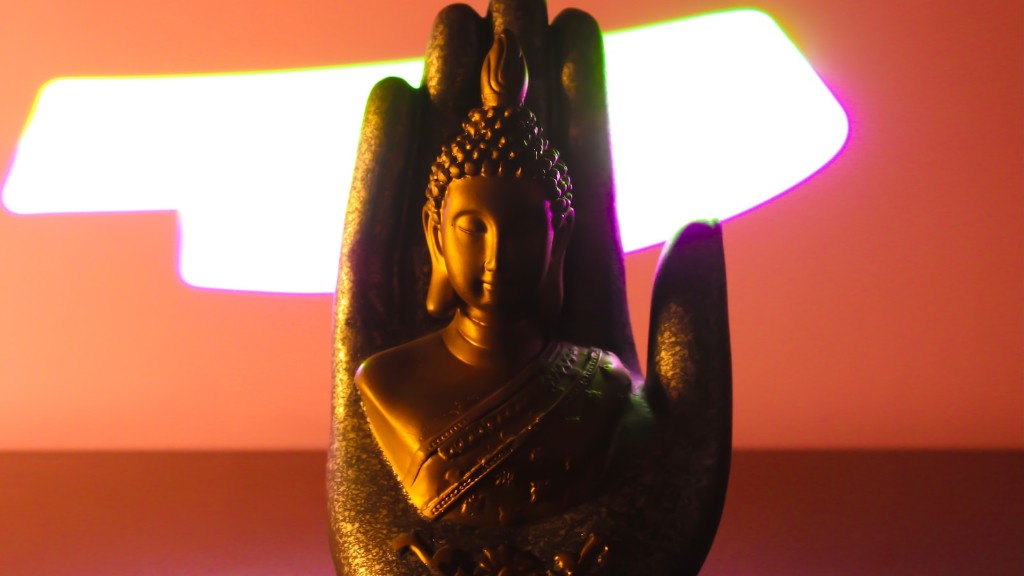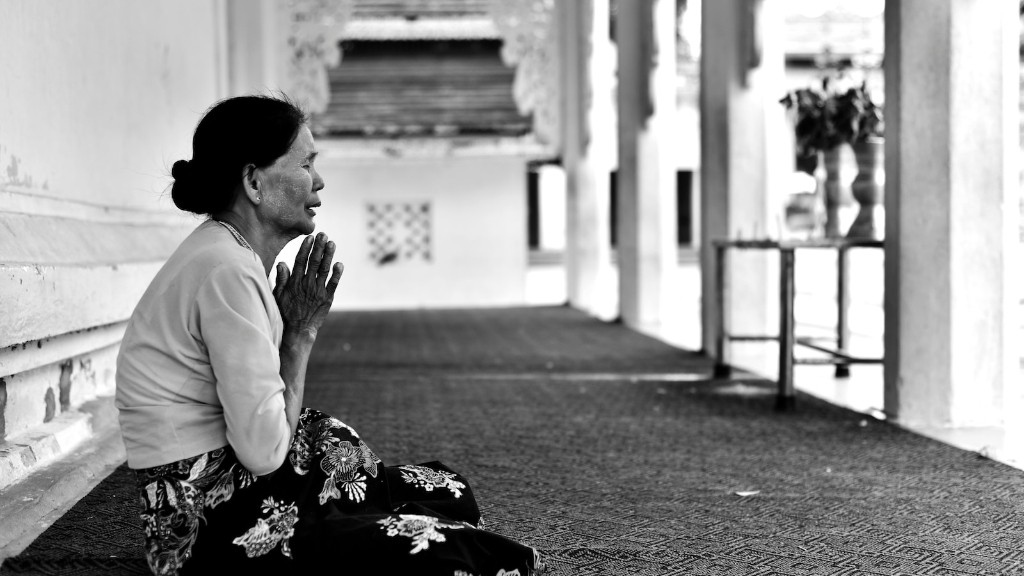Buddhism is about developing an understanding of the true nature of reality and finding peace and happiness within it. It’s about learning to live in harmony with others and seeing the world as it truly is, not as we want it to be.
Buddhism is a religion and philosophy founded in India by Siddhartha Gautama. Gautama, who later came to be known as the Buddha, was born into a wealthy family in what is now modern Nepal. He later renounced his princely life to seek out the truth about human suffering. After years of study and contemplation, he finally attained enlightenment and began teaching others what he had learned.
Buddhism upholds that all beings have the same Buddha-nature and are capable of attaining enlightenment. The ultimate goal of Buddhist practice is to end suffering and achieve Nirvana, a state of complete peace and freedom. Buddhism teaches that suffering is caused by our own ignorance and attachments, and that the only way to end suffering is to let go of these things.
Buddhism also emphasizes the importance of compassion and altruism. Buddhists believe that by cultivating these qualities, we can not only reduce our own suffering, but also help others to do the same.
What is the main idea of Buddhism?
Buddhists believe that human life is a cycle of suffering and rebirth. However, if one achieves a state of enlightenment (nirvana), it is possible to escape this cycle forever. Siddhartha Gautama was the first person to reach this state of enlightenment and was, and is still today, known as the Buddha.
Buddhism is a religion that is based on the teachings of Siddhartha Gautama. The main principles of this belief system are karma, rebirth, and impermanence. Buddhism teaches that everything is connected and that our actions have consequences. Rebirth is a central concept in Buddhism and it teaches that we are reborn into different forms after we die. Impermanence is another key principle of Buddhism and it teaches that everything is constantly changing and that nothing lasts forever.
What are 5 beliefs of Buddhism
The precepts are a fundamental part of Buddhist doctrine, and are meant to develop mind and character to make progress on the path to enlightenment. They are commitments to abstain from killing living beings, stealing, sexual misconduct, lying and intoxication. Within the Buddhist tradition, these precepts are seen as essential for developing a mind that is focused and at peace.
Buddhism is a tradition focused on spiritual liberation, but it is not a theistic religion. The Buddha himself rejected the idea of a creator god, and Buddhist philosophers have even argued that belief in an eternal god is nothing but a distraction for humans seeking enlightenment.
What is Buddhism vs Christianity?
There are inherent and fundamental differences between Buddhism and Christianity. Christianity is based on the belief in one God, while Buddhism does not believe in a supreme being. Christianity also believes in the concept of sin and redemption, while Buddhism teaches that all beings are subject to rebirth and that there is no permanent soul. Buddhism also teaches that the way to end suffering is through the Four Noble Truths and the Eightfold Path, while Christianity teaches that salvation comes through faith in Jesus Christ.
Buddhism is a religion that does not believe in a supreme god or deity. Instead, followers of Buddhism focus on achieving enlightenment, which is a state of inner peace and wisdom. Once a person reaches enlightenment, they are said to have experienced nirvana. The founder of Buddhism, Buddha, is considered an extraordinary being, but not a god.
Can Buddhists drink alcohol?
Buddhism teaches that alcohol and drugs can lead to carelessness and should be avoided. Strong Buddhist beliefs would lead one to expect a significant impact on alcohol use.
Buddhist teaching views life and death as a continuum, believing that consciousness (the spirit) continues after death and may be reborn. Death can be an opportunity for liberation from the cycle of life, death and rebirth.
Does Buddhism believe in karma
Karma is a central concept in Buddhism that refers to the idea of cause and effect. According to Buddhist teachings, our actions have consequences and can lead to either positive or negative outcomes in our lives. The law of karma suggests that our actions in this life will determine our lot in future lives, and this cycle of cause and effect can continue indefinitely. As such, Buddhists believe it is important to be mindful of our actions and to try to cultivated positive karma by doing good deeds.
Buddha advised monks to avoid eating 10 kinds of meat for self-respect and protection: humans, elephants, horses, dogs, snakes, lions, tigers, boars and hyenas. However, food is still prepared as a spiritual exercise with attention to balance, harmony, and delicacy. Conscious eating is followed among all Buddhists in order to respect the Buddha’s wishes and to maintain a healthy and balanced lifestyle.
What are the unforgivable sins in Buddhism?
The five sins of this kind are killing one’s mother, killing one’s father, killing an arhat (saint), injuring the body of a buddha, and causing a division in the Buddhist community. All of these are considered to be incredibly serious offences, and those who commit them will face serious consequences.
These are the three physical evils of killing, stealing, and sexual misconduct; the four verbal evils of lying, flattery or indiscriminate and irresponsible speech, defamation, and duplicity; and the three mental evils of greed, anger, and foolishness or the holding of mistaken views.
Do Buddhists believe in heaven
In Buddhism, there is no concept of punishment or reward and there is no divine being who decides who goes to hell or heaven. There is merely the illusory results of our thought, words and deeds, which we call karma.
Despite what many people believe, plenty of Buddhists celebrate the holiday season. In fact, among Asian American Buddhists, three-quarters partake in Christmas festivities. Additionally, on December 8th, some Buddhists observe Bodhi Day, which commemorates when the Buddha reached enlightenment. So, even though it may be unexpected, Buddhists can definitely get into the holiday spirit!
Can anyone be a Buddhist?
Anyone can be a Buddhist, regardless of their background or upbringing. To become a Buddhist, one simply needs to participate in a ceremony known as taking refuge in the Triple Gem. This ceremony signifies a commitment to the Buddhist path and a desire to live in accordance with the Buddha’s teachings. After taking refuge, Buddhists can choose to follow any of the many different schools and traditions of Buddhism.
Christians and Buddhists have very different beliefs. Christians preach of one God, creation and salvation, while Buddhists believe in reincarnation, enlightenment and nirvana. These beliefs are not compatible at all.
What do Buddhists pray for
When we pray to buddhas, bodhisattvas, and spiritual masters, we are asking for their help in invoking the enlightened qualities of our own heart and mind. We let go of our ego’s resistance to humility, and open ourselves up to receiving their wisdom and grace. In doing so, we align ourselves with their enlightened state of being, and create the conditions for our own transformation.
Buddhists visit their local temple for services and teaching, taking offerings of flowers, candles and food. Buddhists can worship both at the temple and at home. In a Buddhist home, there will be one room or area used as a shrine with a statue of Buddha, incense and candles.
Warp Up
Buddhism is a religion and philosophy founded in India by Siddhartha Gautama in the 6th or 5th century BCE. The key beliefs of Buddhism include the Four Noble Truths, which state that suffering is an inherent part of life, that suffering is caused by craving and attachment, that suffering can be stopped by letting go of craving and attachment, and that there is a path toliberation from suffering; and the Eightfold Path, which outlines the steps to be taken to achieve nirvana, or liberation from suffering.
In conclusion, Buddhism is all about finding inner peace and enlightenment. It teaches followers to let go of attachments and focus on the present moment. Buddhism also emphasizes compassion, generosity, and helping others.




